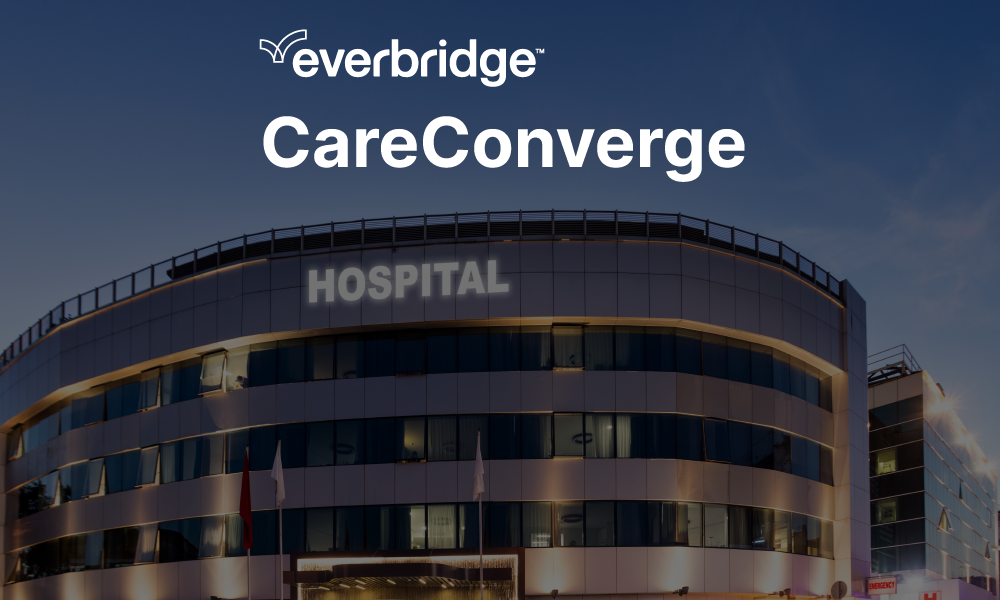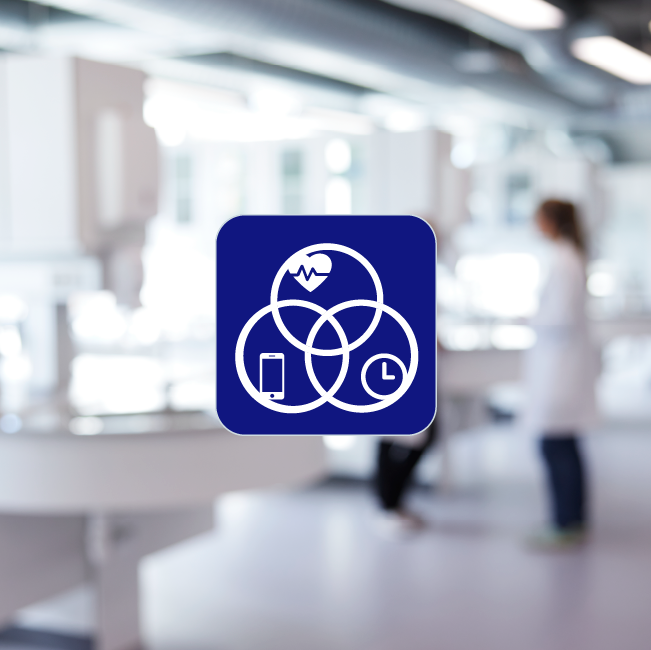Accelerate clinical response
Improve team collaboration

Make seconds matter with a platform you can trust
No matter the situation, high-acuity cases like stroke or STEMI, or daily clinical care – Everbridge’s industry-leading CareConverge, increases efficiencies to speed diagnosis and treatment. The result: better patient outcomes, improved staff and patient satisfaction, and a HIPAA-compliant platform you can trust to deliver, secure, timely, patient-centered care.
Improve stroke outcomes
Keep your people safe while re-opening operations
Every minute counts when dealing with high-acuity patients, but none more so than stroke patients. For these critical cases, many hospitals leverage remote specialists who often rely on images and texts to quickly consult and advise. As noted in a recent study with the Mayo Clinic, which measured the impact of clinical communications and teleconsulting, texts and images fall short in comparison to the real-time video call capabilities of CareConverge. The study concluded that CareConverge saved 7.45 minutes of time per patient. In the event of a stroke, this equates to millions of brain cells saved where the door-to-needle time was significantly reduced by confirming the patient’s state prior to their arrival. The Mayo Clinic saw a potential $4,600+ savings per patient in inpatient days and over $1 million dollars in equipment costs compared to traditional mobile stroke units.
Faster team activation
Team-based responses to those patients most in need continues to expand in hospitals. From Stroke, STEMI, and Trauma to Sepsis and Rapid Response, quickly locate and activate the right care team members for these critical patient events. Everbridge is helping hospitals reduce team response times and improve patient outcomes.


Care team collaboration
Improving clinical communication and collaboration among physicians, nurses and emergency response teams is critical to faster clinical response times and improved patient care and outcomes. Yet, it’s also one of the most challenging aspects of providing healthcare. The Joint Commission reports that 37% of all sentinel events are caused by a communication or assessment issue. Nowhere is this more critical than in a hospital Emergency Department. From curbside consults to nurse and physician follow-ups Everbridge is helping customers today to streamline and secure daily clinical communications.
Remote patient assessment
Coordinating with remote specialists or directly monitoring remote patients is one of the ways hospitals can reduce costs and increase throughput. Everbridge is supporting hospitals across the US with programs ranging from remote assessment to hospital at home.

“Since implementation, we’ve improved ED throughput by 19% with a 1.5-hour reduction in the length of stay from arrival to ED departure. This has translated into a 62% improvement in door-to-doctor time. We continue to measure patient outcomes — however team members have reported high satisfaction due to reduced alarm fatigue and the reduced need of pagers”



